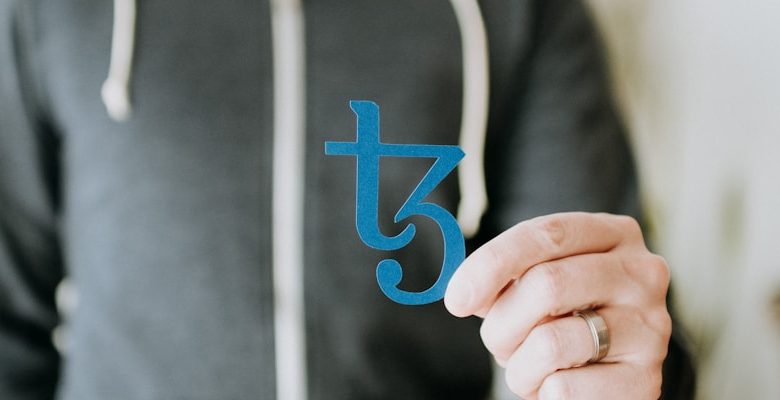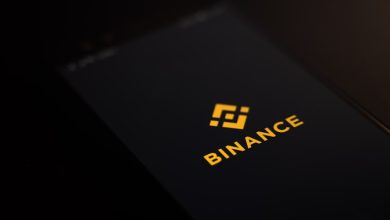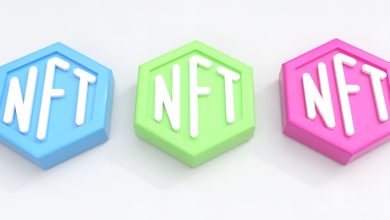The Future of Governance Tokens in the Crypto Ecosystem

- The Rise of Governance Tokens in DeFi
- Exploring the Role of Governance Tokens in Decentralized Finance
- Challenges and Opportunities for Governance Tokens in Crypto
- The Evolution of Governance Models in the Crypto Ecosystem
- Governance Tokens: Empowering Community Decision-Making
- Regulatory Considerations for Governance Tokens in the Future
The Rise of Governance Tokens in DeFi
The rise of governance tokens in the decentralized finance (DeFi) space has been nothing short of remarkable. These tokens have gained significant traction in the crypto ecosystem, offering holders a say in the decision-making process of various platforms and protocols. Governance tokens enable token holders to propose and vote on changes to the network, such as protocol upgrades, fee adjustments, and even new token listings.
One of the key drivers behind the popularity of governance tokens is the concept of decentralization. By giving token holders a voice in the governance of a platform, projects can become more community-driven and less reliant on centralized entities. This level of decentralization is a core principle of many DeFi projects, as it helps to ensure that decisions are made in the best interest of the community as a whole.
Furthermore, governance tokens also serve as an incentive mechanism for users to actively participate in the governance process. By holding tokens and actively voting on proposals, users can earn rewards in the form of additional tokens or other incentives. This not only helps to increase engagement within the community but also aligns the interests of token holders with the long-term success of the project.
Exploring the Role of Governance Tokens in Decentralized Finance
Governance tokens play a crucial role in the decentralized finance (DeFi) ecosystem. These tokens give holders the power to vote on decisions that impact the future of a project or platform. By holding governance tokens, users can participate in key governance processes such as proposing and voting on changes to protocols, electing key stakeholders, and deciding on budget allocations.
One of the key benefits of governance tokens is that they promote decentralization within the DeFi ecosystem. Instead of decisions being made by a centralized authority, governance tokens allow for a more democratic and transparent decision-making process. This helps to ensure that the interests of all stakeholders are taken into account and that the platform evolves in a way that benefits the community as a whole.
Furthermore, governance tokens can also incentivize users to actively participate in the governance of a platform. By rewarding users with governance tokens for participating in key governance processes, platforms can encourage greater engagement and ensure that decisions are made with the input of a wide range of stakeholders. This can help to create a more vibrant and resilient ecosystem that is better able to respond to changing market conditions and user needs.
In conclusion, governance tokens are a vital component of the DeFi ecosystem, enabling users to have a say in the future direction of the platforms they use. By empowering users with the ability to participate in key governance processes, governance tokens help to promote decentralization, transparency, and community engagement within the DeFi space. As the DeFi ecosystem continues to grow and evolve, governance tokens are likely to play an increasingly important role in shaping its future.
Challenges and Opportunities for Governance Tokens in Crypto
Governance tokens in the crypto space face a unique set of challenges and opportunities that will shape their future trajectory. These tokens play a crucial role in decentralized governance, allowing token holders to participate in decision-making processes within a blockchain ecosystem. However, they also face obstacles that need to be overcome to realize their full potential.
One of the main challenges for governance tokens is regulatory uncertainty. As governments around the world grapple with how to classify and regulate cryptocurrencies, governance tokens are often caught in the crossfire. This lack of clarity can hinder their adoption and create legal risks for projects utilizing them. Overcoming regulatory challenges will be crucial for governance tokens to thrive in the long run.
Another challenge for governance tokens is ensuring active participation from token holders. While these tokens give holders voting rights on important decisions, apathy and disengagement can prevent meaningful governance from taking place. Projects must find ways to incentivize participation and ensure that decisions are made in the best interest of the community.
Despite these challenges, governance tokens also present exciting opportunities for innovation in the crypto space. By giving users a stake in the governance of a platform, these tokens can foster a sense of ownership and decentralization. This can lead to more transparent and democratic decision-making processes, ultimately benefiting the entire ecosystem.
In conclusion, governance tokens have the potential to revolutionize how decentralized projects are governed. By addressing regulatory challenges, incentivizing participation, and leveraging the opportunities for innovation, these tokens can play a crucial role in shaping the future of the crypto ecosystem. It will be interesting to see how governance tokens evolve and adapt in response to the changing landscape of the crypto industry.
The Evolution of Governance Models in the Crypto Ecosystem
In the rapidly evolving landscape of the crypto ecosystem, governance models have undergone significant changes to adapt to the growing complexity of decentralized networks. These governance models play a crucial role in ensuring the smooth functioning of blockchain projects by allowing token holders to participate in decision-making processes.
One of the key trends in the evolution of governance models is the shift towards more decentralized and community-driven approaches. This shift has been driven by the recognition that centralized governance structures can lead to power imbalances and conflicts of interest. As a result, many projects are now exploring new ways to distribute governance power more evenly among token holders, allowing for greater transparency and accountability.
Another important development in governance models is the rise of on-chain governance mechanisms. On-chain governance allows for the automation of decision-making processes through smart contracts, reducing the need for human intervention and making governance more efficient. This approach also helps to increase the security of governance processes by reducing the risk of human error or manipulation.
Some projects are also experimenting with hybrid governance models that combine elements of both on-chain and off-chain governance. These hybrid models seek to leverage the benefits of both approaches, allowing for greater flexibility and responsiveness in decision-making while still maintaining a degree of human oversight.
Overall, the evolution of governance models in the crypto ecosystem reflects a growing recognition of the importance of effective governance in ensuring the long-term success of blockchain projects. By embracing more decentralized, transparent, and efficient governance models, projects can create a more inclusive and resilient ecosystem for all participants.
Governance Tokens: Empowering Community Decision-Making
Governance tokens play a crucial role in empowering community decision-making within the crypto ecosystem. These tokens give holders the ability to vote on proposals and changes that impact the future direction of a project. By owning governance tokens, users have a say in key decisions such as protocol upgrades, fund allocation, and overall project governance.
Through the use of governance tokens, projects can decentralize decision-making processes and ensure that the community has a voice in how the project evolves over time. This level of transparency and inclusivity is essential for building trust and engagement among token holders. Additionally, governance tokens can help align the incentives of all stakeholders towards the long-term success of the project.
One key benefit of governance tokens is that they incentivize active participation within the community. Token holders are more likely to engage with the project, stay informed about developments, and contribute valuable insights when they have a direct stake in the decision-making process. This ultimately leads to a more robust and resilient ecosystem that can adapt to changing market conditions and user needs.
Overall, governance tokens are a powerful tool for fostering community engagement and driving the evolution of decentralized projects. By giving users a voice in the governance process, these tokens help create a more democratic and inclusive ecosystem where all participants have a stake in the success of the project. As the crypto ecosystem continues to grow and evolve, governance tokens will play an increasingly important role in shaping its future direction.
Regulatory Considerations for Governance Tokens in the Future
In terms of regulatory considerations for governance tokens in the future, it is essential to keep in mind that the landscape is constantly evolving. As governments around the world grapple with how to classify and regulate cryptocurrencies, including governance tokens, it is crucial for projects issuing these tokens to stay abreast of any changes in the regulatory environment.
One key consideration for governance token projects is whether their tokens could be classified as securities in the eyes of regulators. If governance tokens are deemed to be securities, they may be subject to additional regulations and compliance requirements. This could have significant implications for how these tokens are issued, traded, and used within their respective ecosystems.
Another important aspect to consider is the potential for regulatory scrutiny of governance token voting processes. As governance tokens are used to make decisions that impact a project’s future, regulators may take an interest in ensuring that these processes are fair, transparent, and free from manipulation. Projects issuing governance tokens should be prepared to demonstrate the integrity of their voting mechanisms to regulators.
Additionally, projects should be mindful of the potential for regulatory action in cases where governance tokens are used for illicit purposes, such as money laundering or terrorist financing. Ensuring compliance with anti-money laundering and know your customer regulations is essential for governance token projects to avoid running afoul of regulators.
Overall, the future regulatory landscape for governance tokens is still uncertain, but projects can take proactive steps to mitigate risks by staying informed about regulatory developments, seeking legal counsel, and implementing robust compliance measures. By taking a proactive approach to regulatory considerations, governance token projects can position themselves for long-term success in the evolving crypto ecosystem.



